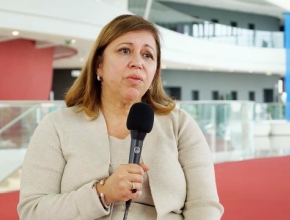The majority of patients with rheumatic diseases should be diagnosed and treated within several weeks of symptom onset. What rheumatologic emergencies warrant immediate action?
Bhaskar Dasgupta, MD: That is an excellent question. Certainly there are several conditions in rheumatology emergencies where you need fast-track access to specialist care. Amongst them the most important one is of course giant cell arteritis (GCA), because that is the true rheumatological emergency where if we do not diagnose and treat early with high-dose corticosteroids in new patients in a disease which is a critically ischemic disease at onset, you have quite a high incidence of irreversible sight loss. Patients with suspected GCA who are having ischemic symptoms such as jaw or tongue pain or patients who have got visual symptoms such as double vision or transient loss of vision or blurring of vision really need to be treated on a fast-track pathway. They need to be diagnosed quickly with the use of point-of-care ultrasound, the diagnosis has to be confirmed, and then you treat them with high-dose steroids.
In addition, there are certain conditions where you need to do fast-track specialist access such as patients with systemic vasculitis, patients who present with renal involvement, patients who present with what we call pulmonary-renal involvement such as if they have alveolar hemorrhages and renal involvement, patients who have got cerebral vasculitis involving the vascular territories of the central nervous system, and people with connective tissue diseases such as lupus who, again, have pulmonary-renal involvement. All these patients really need to be urgently seen and treated on a fast-track basis.
 English
English
 Español
Español
 українська
українська











